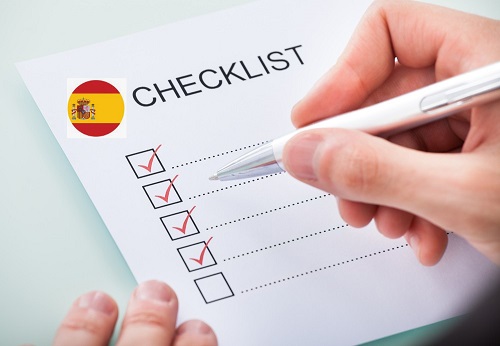Je vais décrire ici mon expérience en tant que Canadien obtenir le visa espagnol Digital Nomad pour l'Espagne. J'ai commencé à vraiment voyager après avoir obtenu mon diplôme universitaire et planté des arbres en Colombie-Britannique, en Alberta et au Québec.
Cependant, je voulais voyager à l'extérieur du Canada et j'ai fini par vivre plusieurs années en Équateur et en Argentine. J'ai visité l'Espagne pour la première fois en 2017 et j'ai adoré. J'ai pu voir le lien avec l'Amérique latine et j'ai le plus apprécié la nourriture, la météo et la sécurité. J'ai déménagé en Espagne en 2019 grâce au programme nord-américain d'assistants linguistiques et culturels (Auxiliares de Conversación). J'ai passé 4 ans comme auxiliaire dans 4 villes Vitoria, San Sebastian, Carboneras et Cordoba. Dans le cadre de ce programme géré par le gouvernement, les anglophones natifs sont scolarisés dans des écoles publiques (écoles primaires, secondaires et de langues officielles) dans toute l'Espagne.
Au milieu de ma quatrième année, j'ai décidé que je voulais rester en Espagne au lieu de retourner dans la toundra gelée. Heureusement, le visa de nomade numérique est également sorti cette année. Il existe d'autres visas que vous pouvez demander en tant qu'indépendant ou entrepreneur, mais le DNV est le meilleur pour les indépendants travaillant en ligne. Pendant mon mandat d'auxiliaire, j'enseignais également l'anglais en ligne pour une entreprise allemande en tant que freelance. C'était ma clé pour obtenir le visa. Le fait de n’avoir qu’un seul « client » a facilité le processus car il faut recevoir une lettre de chaque client autorisant à travailler depuis l’Espagne. Vous devez également avoir travaillé avec ce client pendant au moins un an.
Mon niveau d'espagnol est correct, je me sentais donc suffisamment en confiance pour compléter la candidature moi-même. Il existe quelques groupes Facebook utiles qui peuvent vous aider et je les recommande fortement, vous pouvez y trouver de bons conseils et des réponses à vos questions.
Avant de demander ce visa
Vous devez être un citoyen non-européen travaillant à distance depuis l’Espagne pour une entreprise située en dehors de l’Espagne. Vous devez également gagner au moins le double du salaire minimum espagnol, qui est de 1 050 euros par mois.
Vous devrez demander un NIE (número de identidad de extranjero) et un certificat électronique ou Cl@ve pour vous permettre d'accéder à l'application.
The website to apply is here: https://www.inclusion.gob.es/web/unidadgrandesempresas/solicitudes
Options lors de la demande de ce visa
Il existe deux options différentes selon le type de professionnel que vous êtes…
- an employee that work for a company outside of Spain
- a self-employed person that works for different companies around the world. In this case you could work for a company located in Spain as long as it does not exceed 20% of your total income.
Il existe également deux options selon l’endroit où vous vous trouvez au moment de demander ce visa…
- From Spain: you get a 3-year residence permit (renewable), these years count for both Spanish nationality and permanent residence, which you can get after 5 years in Spain.
- From Cánada (or your country of origin): and get a 1-year residence permit.
Avantages offerts par le visa nomade numérique
Certains des avantages que vous obtiendrez en tant que Canadien en demandant ce visa sont les suivants…
- resolution in just 20 days, and the applicable administrative silence is positive
- tax advantages: if you are not a freelancer but just work remotely for a company you will pay a flat tax rate of just 24% on your income and also you don’t need to pay wealth tax
vous pouvez inclure votre conjoint et vos enfants dans la demande de visa - Get the permanent residency after 5 years
- Travel in all the Schengen area is allowed
Les documents requis pour demander le Digital Nomad Visa
– Formulaire de demande de visa : téléchargeable ici
- La photographie. une photo couleur format passeport et récente (moins de 2 mois)
– Passeport valide : original et une photocopie et valable au moins 1 an
– Extrait de casier judiciaire : datant de moins de 6 mois
– Justificatif de résidence dans la circonscription consulaire.
– Frais de visa : le montant à payer est de 80€
– Assurance maladie privée, avec couverture dans toute l’Espagne (original et copie du certificat)
– Si vous êtes indépendant, une attestation de travail d’au moins 3 mois (avant la demande de visa) pour une entreprise étrangère.
– Si vous êtes indépendant, un contrat avec cette même entreprise d’au moins 1 an
– Copie du diplôme universitaire ou du certificat professionnel attestant que vous possédez un minimum de 3 années d’expérience dans votre carrière.
Documents à traduire
Le processus en lui-même ne prend pas beaucoup de temps, c'est simplement la collecte et la traduction des documents qui prend le plus de temps.
Certains documents doivent être traduits par un traducteur agréé :
1) Votre contrat de travail
2) Preuve que l'entreprise étrangère pour laquelle vous travaillez existe depuis au moins un an
3) Votre diplôme/certificat lié au travail que vous effectuez
Une simple traduction d’autres documents est nécessaire, vous pouvez donc traduire ces documents vous-même :
1) CV
2) Lettre de votre entreprise vous autorisant à travailler à l'étranger
Chronologie
L’ensemble du processus m’a pris environ 5 mois. Je n'ai demandé le visa qu'à la fin de l'année scolaire, où j'avais alors 90 jours pour soumettre la demande. J'ai soumis ma demande en juin et j'ai été approuvée environ 30 jours ouvrables plus tard.
Ils m'ont dit d'attendre une réponse dans les 20 jours, après 20 jours j'ai soumis une demande de résolution favorable basée sur le silence administratif (vous pouvez le faire sur la même page Web que la demande initiale) et j'ai été approuvé environ 10 jours après.




